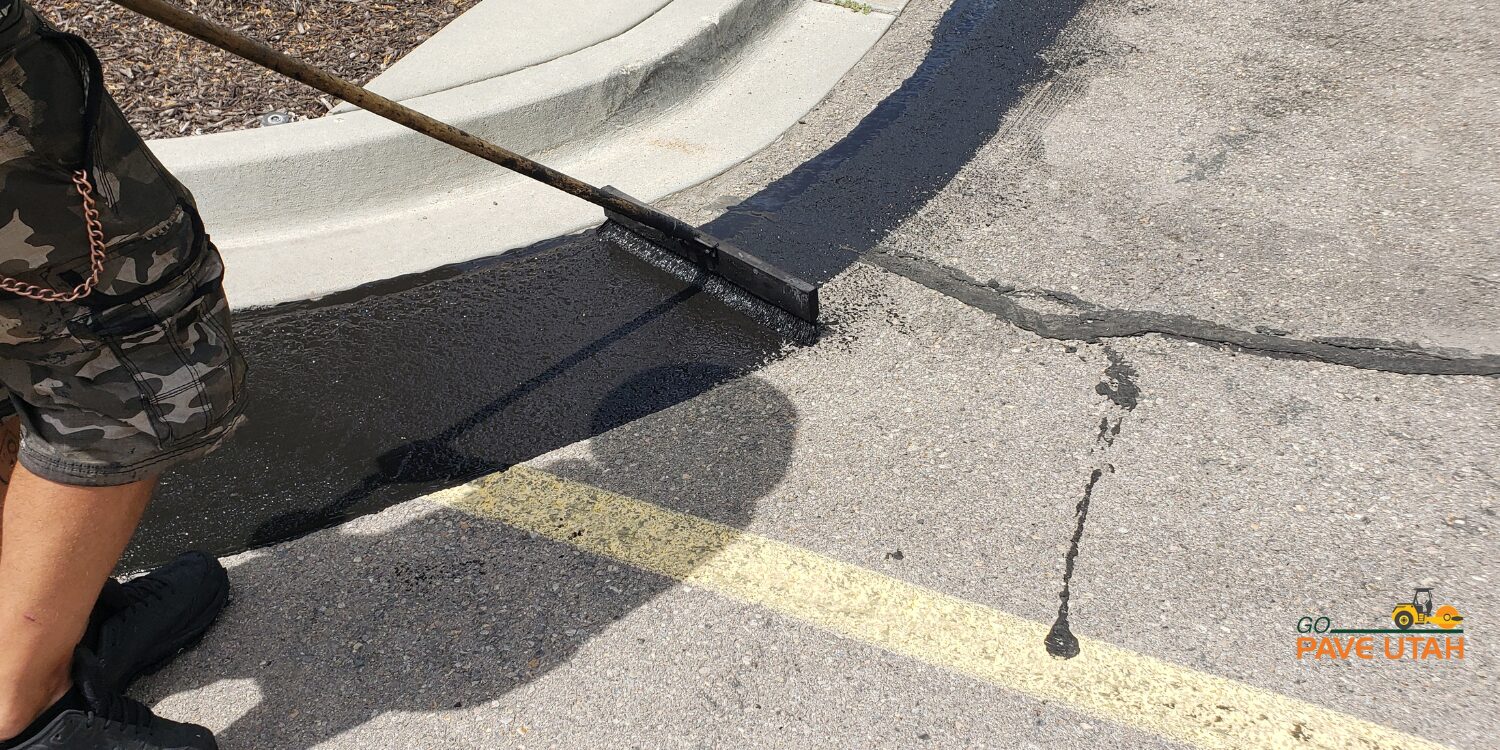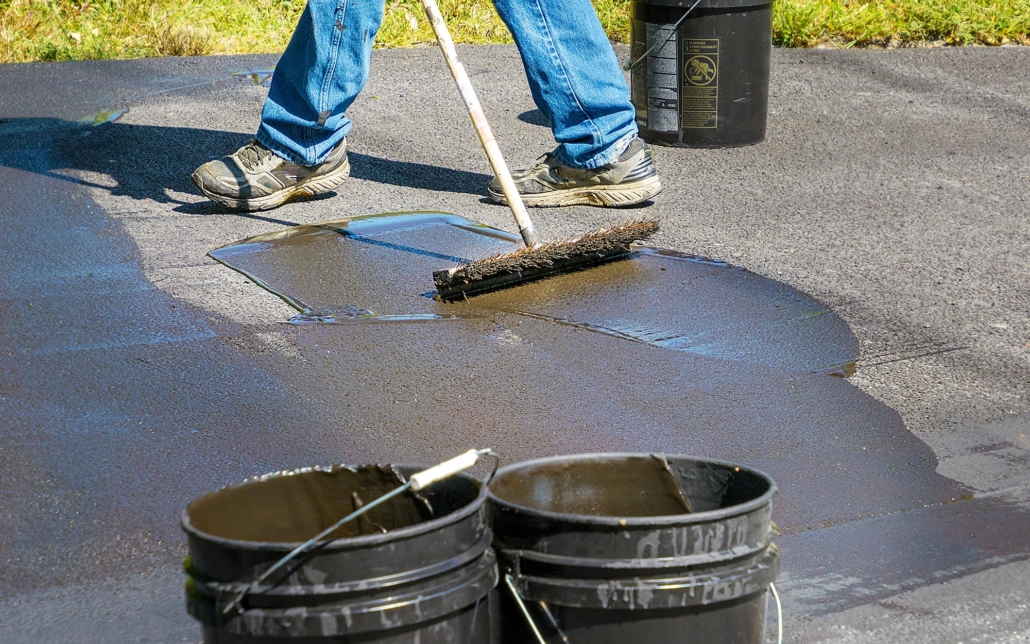Seal in Top Quality: Expert Solutions for Asphalt Repair and Sealing
Seal in Top Quality: Expert Solutions for Asphalt Repair and Sealing
Blog Article
Cold Mix Asphalt Vs. Hot Mix Asphalt: Which Is Right for You?

Composition Distinctions
Cold mix asphalt is generated by emulsifying the asphalt binder with water and an emulsifying agent before blending it with aggregate. The warm mix asphalt manufacturing procedure entails heating up the aggregate and asphalt binder independently before integrating them at the asphalt plant.
Furthermore, cool mix asphalt has a tendency to be less thick and a lot more versatile than hot mix asphalt. This flexibility makes it better fit for locations with greater levels of activity, such as driveways or roadways with rush hour. On the other hand, hot mix asphalt is understood for its high sturdiness and resistance to rutting and cracking, making it a recommended choice for highways and high-traffic roadways where durability is crucial.
Setup Refine Differences
The process of setting up chilly mix and warm mix asphalt exhibits significant differences in their requirements and procedures. In comparison, hot mix asphalt demands an extra intricate installment procedure. Due to the home heating requirements, hot mix asphalt setups are usually lugged out by professionals with specific devices, guaranteeing a much more structurally audio and permanent outcome.
Toughness and Longevity Elements
When considering asphalt choices, durability and longevity are vital aspects to review for lasting sidewalk performance. Hot mix asphalt (HMA) is understood for its outstanding resilience and long life. The heats throughout the laying and mixing process enable far better compaction, causing a denser and more powerful pavement structure. This results in HMA being extra resistant to hefty traffic lots, rough weather, and the effects of maturing compared to chilly mix asphalt (CMA)
In terms of longevity, HMA typically outperforms CMA because of its premium strength and resistance residential or commercial properties. HMA sidewalks have a longer life span, needing much less regular repair services and upkeep, which can equate to set you back financial savings over time. Additionally, HMA pavements are a lot more conveniently personalized to satisfy specific task requirements, additionally enhancing their toughness.
Price Considerations
Thinking about the financial implications is a crucial aspect when reviewing the selection in between hot mix asphalt (HMA) and cold mix asphalt (CMA) for sidewalk jobs. While the initial cost of hot mix asphalt is generally higher than that of cool mix asphalt, HMA usually provides an extra cost-efficient remedy in the future because of its exceptional resilience and durability. HMA is understood for its ability to hold up against heavy website traffic lots and harsh climate condition, lowering the demand for regular repair work and upkeep. On the various other hand, chilly mix asphalt is extra economical ahead of time but might call for more constant patching and resurfacing, leading to greater maintenance costs gradually.
In enhancement to product costs, it's essential to think about the expenditures connected with setup and upkeep when comparing HMA and CMA. HMA generally calls for customized tools and skilled labor for proper installment, which can influence general job prices. Conversely, CMA is simpler to deal with and can usually be applied utilizing less complex techniques, possibly lowering installment costs. Inevitably, the decision in between HMA and CMA need to take into consideration not simply the initial price however additionally the lasting financial ramifications to establish one of the most cost-effective option for the details sidewalk task.
Environmental Impact Contrast
Contrast of the environmental impacts between hot mix asphalt (HMA) and cool mix asphalt (CMA) reveals distinct differences in sustainability techniques. HMA production requires high temperatures, resulting in enhanced energy usage and greenhouse gas exhausts. The process likewise launches unpredictable organic compounds (VOCs) and dangerous air toxins (HAPs) right into the ambience. In comparison, CMA is produced and used at lower temperature levels, decreasing energy usage and discharges significantly. The reduced manufacturing temperatures of CMA cause decreased gas consumption and reduced levels of CO2 discharges, making it a more eco-friendly alternative.
Moreover, the usage of CMA usually involves reusing existing asphalt pavement, advertising resource conservation and minimizing the amount of waste sent out to garbage dumps. This reusing aspect even more enhances the sustainability of CMA contrasted to HMA. Generally, when taking into consideration the ecological influence, CMA becomes an extra ecologically sustainable choice as a result of its reduced energy demands, minimized discharges, and the potential for recycling existing products. By going with CMA over HMA, roadway construction projects can contribute favorably to environmental preservation initiatives.
Verdict
Finally, the selection between cold mix asphalt (CMA) and warm mix asphalt (HMA) relies on numerous aspects such as structure, installment process, resilience, longevity, expense, and ecological impact. angle parking. While CMA uses a fast and cost-effective solution for small repair work, HMA makes certain exceptional sturdiness and durability for rush hour locations. Think about these factors carefully to establish which kind of asphalt is the ideal selection for your paving requires

Taking into consideration the monetary ramifications is an important facet when evaluating the selection in between warm mix asphalt (HMA) and cool mix asphalt (CMA) for sidewalk tasks. While the initial expense of warm mix asphalt is usually higher than that of chilly mix asphalt, HMA frequently gives a much more cost-efficient service in angle parking the lengthy run due to its superior durability and durability. cold mix asphalt.Comparison of the environmental impacts between hot mix asphalt (HMA) and cool mix asphalt (CMA) exposes distinct differences in sustainability methods.In final thought, the selection between cold mix asphalt (CMA) and hot mix asphalt (HMA) depends on different aspects such as structure, installation process, durability, durability, price, and environmental impact
Report this page